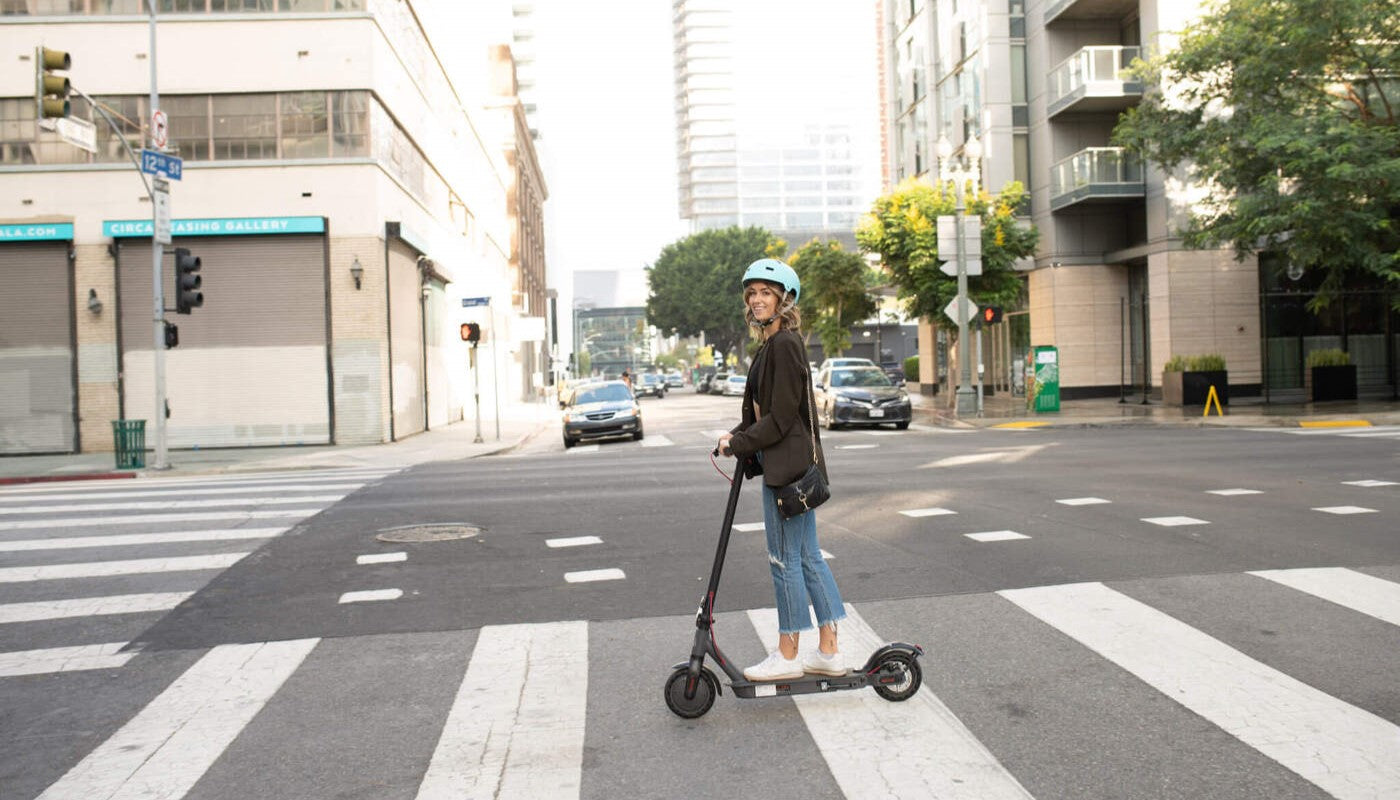Introduction
Electric scooters (commonly referred to as "e-scooters") have quickly become an indispensable mode of urban transportation in many Canadian cities, especially urban centers like Toronto. To ride an electric scooter safely and legally, one must understand its rules and regulations; these may differ depending on where in Canada one lives or the municipality you call home - This guide should help explain any provincial/municipal specific laws that apply.
Table of Content [hide]
Classification of Electric Scooters
Before approaching licensing requirements for electric vehicles, it's essential that one fully comprehends their various types and legal classifications.
Different kinds of electric scooters
Electric Bicycles: Electric bicycles are pedal-assisted bicycles equipped with an electric motor and are often considered bicycles, subjecting them to applicable regulations and guidelines.
Electric Scooters: Electric scooters designed specifically for city travel feature stand-up designs equipped with electric motors for short journeys over short distances.
Gas-Powered Scooters: Motorcycles and mopeds have their own licensing requirements; each has the potential for different licensing requirements and should be treated separately when licensing requirements come up.
Local Bylaws & Regulations
Be mindful of local regulations when riding an electric scooter. Always adhere to local bylaws when out riding one.
License Requirements
Most provinces of Canada permit you to own and ride an electric scooter without needing a license, insurance policy, or number plate; but please check with local authorities first before riding and owning one.
Age restrictions do apply when riding E-Scooters
Age restrictions vary between provinces for drivers. Many provinces require riders to be 16 or 18 years of age before riding; so make sure you understand any potential regulations in your region before driving or riding a motorized vehicle.
All Canadian provinces that permit the use of electric bicycles require drivers to wear an approved helmet in order to reduce accidents.
Federal Speed and Power Limits
Canada currently accepts electric scooters in eight provinces across Canada - Manitoba and British Columbia are two examples - with regulations specific to each province that limit power usage to 500W while speed cannot surpass 32km/h.
Road Rules
E-scooter riders should follow the same road rules that govern cyclists and pedestrians; it is crucial they heed traffic signs and signals, obey traffic signals, and respect traffic signs and signals. Electric scooters may not be permitted on certain province roads, paths, lanes, or thoroughfares depending on the local government's perceptions about them - this decision does not depend on any federal policy but solely depends on municipal attitudes toward these e-scooters.
Penalties and Enforcement
Every location may impose different safety and licensing regulations that must be obeyed to avoid fines, license suspension, or criminal charges for noncompliance with regulations. To prevent legal problems associated with non-compliance always obey all rules to stay away from legal consequences. To stay out of trouble always abide by them
Table Showing Rules Followed by Different Provinces in Canada
|
Provinces |
Rules Followed |
Age Required for License |
|
Newfoundland and Labrador |
Herein it would be best to have a reflector, a red rear light, and white front light in your E-scooter. |
If the rider's age is between 14 to 17 years, permission from related authorities is required. If the rider is 18 years or above, registration or a license to operate the E-scooter is unnecessary. |
|
Northwest Territories, Yukon and Nunavut |
Herein all the federal rules and regulations apply owing to the federal jurisdiction in operation.
|
There are no age limits in Nunavut for riding e-scooter. However, wearing a helmet and following rules set by the local authorities and state for vehicles is mandatory. |
|
Quebec |
Herein the e-scooter is compulsory to have the manufacturer's original label. However, the rider has the freedom of driving the e-scooter with three wheels. |
The rider of 18 and above must have a class 6D license. Besides, only riders above 14 are allowed to ride e-scooter. |
|
Saskatchewan |
Herein the classification has been done between a battery-powered scooter that can be operated using pedals and a motor simultaneously or if you have a cycle that runs on power but uses pedals and motor together or a motor alone. The bicycle running on power must abide by the rules set by CMVSS- Canadian Motor Vehicle Safety Standards. |
You must require a registration or license to operate a bicycle assisted with power, and you must be 14 years or above to ride it. |
|
Prince Edward Island |
Here the rules related to e-scooters have been updated in recent years. The rider must have a tail lamp or light attached to their e-bike to ride it in this location legally. |
|
|
New Brunswick |
In this place, the e-scooter must have a seat height of around 68 cm above the ground level. They must also have wheel rims that are not under 22 cm. It must have a functional headlight to make the E-scooter operational at night. |
There are no restrictions on the minimum riding age for an e-scooter in this place. |
|
Nova Scotia |
Similar to the regular pedal scooters, the ones with power assistants are treated the same. The rider must wear a helmet along with a good chin strap set right at the place while driving the e-bike. |
No age limit. |
|
Alberta |
Herein the riders do not require any license, insurance, or registration to operate an e-scooter. However, they must wear a helmet while using an e-bike. Additionally, the passenger must have a designated seat, and they are not entertained on the vehicle's handlebars. |
Anyone of 12 or more years of age can ride a scooter with a restriction of traveling alone and not carrying a passenger unless they are above 16 years. |
|
Ontario |
Being one of the recent provinces to pass a legal Veto over e-scooter being used on roads, Ontario follows similar rules as followed by British Columbia. However, they are more strict than the other provinces in this case. Along with this, you must follow a 9-meter braking distance with a restriction of 120 kgs of the weight of the E-scooter. |
It is required to wear a helmet while riding an e-scooter and must be 16+ years old to ride a scooter. |
|
British Columbia |
Herein, you may call the e-scooter a different name as motor-assisted cycles. However, the rules apply to them just as in other provinces. Besides, it is a must for the rider to wear a helmet while driving the e-scooter. |
There is arule of being 16 years or above to ride e-scooters in this province. You may not get your e-scooter insured, and that is perfectly fine here. However, you must have a driving license or any registration stating that you are equipped with riding capabilities. |
|
Manitoba |
Wearing a good quality helmet that fits the head well while riding an e-scooter in this place is mandatory for the rider's safety. The Canadian government rules are applied here for using ordinary bicycles and other vehicles. |
The rider must not be less than 14 to ride the E-scooter. The riders are required to mobility in a single form if they do not allow a pass for a turning or passing another rider. |
Note: Top speed of 32kmph along with a 500 watts motor or less applies to all the provinces.
Conclusion
Licensing requirements to ride electric scooters may differ significantly by province and municipality, making e-scooter use both legal and safe and essential to successful commuting habits. Therefore, understanding local regulations regarding their usage is vitally important if riders hope to use a legal e-scooter ride without incident or legal trouble. Safety must always come first: wear helmets when riding legally as well as adhere to traffic rules while practicing responsible riding practices.










Share:
Protecting Your E-Bike : 7 Proven Tactics to Deter Theft
It’s Hiboy 4th Anniversary Celebration - We Are Grateful for Your Tremendous Support